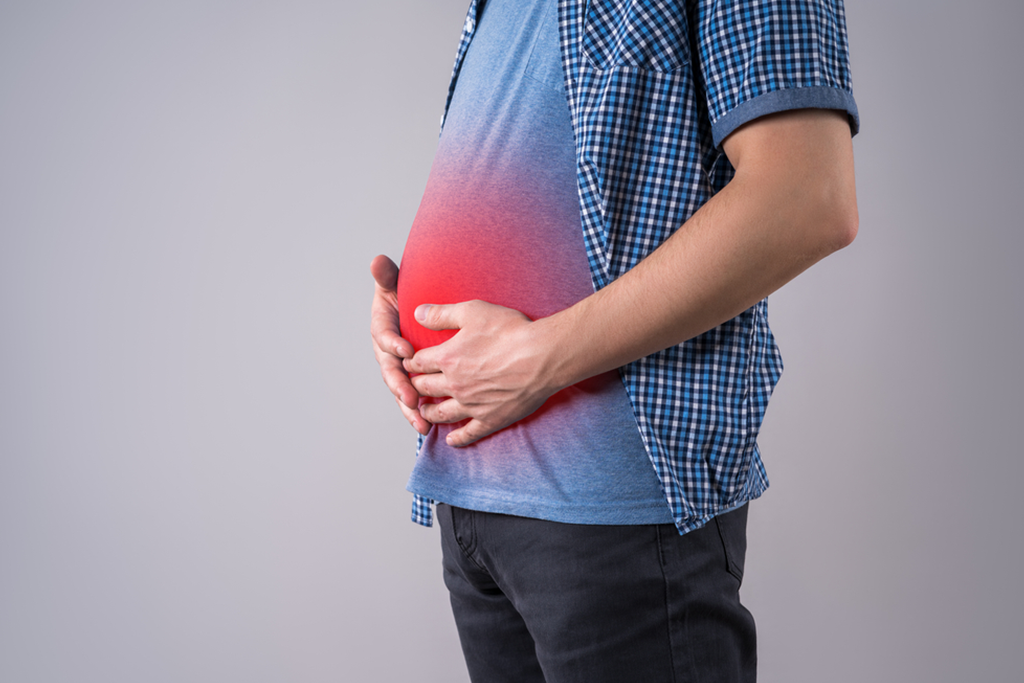Introduction
Bloating and gas are common digestive complaints that most people experience occasionally. While they are often harmless and result from dietary habits or lifestyle factors, persistent or severe bloating and excessive gas can indicate an underlying digestive disorder. Understanding the causes, symptoms, and when to seek medical attention is crucial for maintaining good gut health.
What Causes Bloating and Gas?
Bloating occurs when the gastrointestinal (GI) tract becomes filled with air or gas, leading to discomfort, a feeling of fullness, and sometimes visible abdominal distension. Several factors contribute to bloating and gas, including:
- Dietary Factors
- High-Fiber Foods: Beans, lentils, cabbage, and whole grains can cause excessive gas production.
- Dairy Products: Lactose intolerance can lead to bloating and gas after consuming milk, cheese, or yogurt.
- Carbonated Drinks: Soda, beer, and sparkling water introduce excess gas into the stomach.
- Artificial Sweeteners: Sugar alcohols like sorbitol and xylitol can cause digestive discomfort.
- FODMAPs: Certain fermentable carbohydrates in foods like onions, garlic, and apples can trigger bloating.
- Swallowing Excess Air (Aerophagia)
- Eating too fast
- Drinking through a straw
- Chewing gum
- Talking while eating
- Gut Microbiome Imbalance
An overgrowth of certain bacteria in the intestines can produce excess gas, leading to bloating and discomfort.
- Constipation
When stool remains in the colon for too long, it can cause gas buildup and bloating.
When Is Bloating a Sign of a Digestive Disorder?
While occasional bloating is normal, chronic or severe bloating may indicate an underlying gastrointestinal condition. Some possible causes include:
- Irritable Bowel Syndrome (IBS)
- Recurring bloating, cramping, and altered bowel habits
- Often triggered by stress or certain foods
- Small Intestinal Bacterial Overgrowth (SIBO)
- Overgrowth of bacteria in the small intestine causes excessive gas production
- Symptoms include bloating, diarrhea, or constipation
- Gastroesophageal Reflux Disease (GERD)
Acid reflux can cause bloating along with heartburn and regurgitation
- Celiac Disease
- An autoimmune condition triggered by gluten consumption
- Symptoms include bloating, diarrhea, fatigue, and weight loss
- Lactose Intolerance
- Inability to digest lactose leads to bloating, gas, and diarrhea
- Symptoms occur after consuming dairy products
- Inflammatory Bowel Disease (IBD)
- Includes Crohn’s disease and ulcerative colitis
- Symptoms include chronic bloating, diarrhea, abdominal pain, and blood in the stool
- Gastroparesis
A condition where the stomach empties too slowly, causing bloating, nausea, and early satiety
When Should You See a Doctor?
Seek medical attention if bloating is accompanied by:
- Severe or persistent abdominal pain
- Unintentional weight loss
- Blood in the stool
- Changes in bowel habits (chronic diarrhea or constipation)
- Difficulty swallowing
- Excessive gas with foul-smelling stools
How to Manage and Prevent Bloating?
If your bloating is not due to an underlying condition, lifestyle and dietary changes can help alleviate symptoms:
- Adjust Your Diet
- Avoid gas-producing foods like beans, broccoli, and carbonated beverages.
- Try a low-FODMAP diet to identify trigger foods.
- Limit processed foods and artificial sweeteners.
- Improve Eating Habits
- Eat slowly and chew food thoroughly.
- Avoid talking while eating to reduce swallowed air.
- Stay Hydrated
Drinking water helps prevent constipation and promotes healthy digestion.
- Exercise Regularly
Physical activity helps move gas through the digestive system.
- Manage Stress
- High stress can impact gut function and contribute to bloating.
- Practice yoga, meditation, or deep breathing exercises.
- Take Probiotics
Probiotics help maintain a healthy gut microbiome and can reduce bloating.
Consult a Gastroenterologist for Persistent Bloating
If you experience frequent bloating and gas that affects your quality of life, consult a gastroenterologist for a thorough evaluation. Early diagnosis of digestive disorders can prevent complications and improve treatment outcomes.
Book an Appointment with Dr. Suryaprakash Bhandari, a leading gastroenterologist at Gastrocare Clinic, Mulund, specializes in diagnosing and treating digestive disorders, bloating, IBS, GERD, and IBD.
Conclusion
While bloating and gas are often harmless, they can sometimes indicate a serious digestive condition. Understanding when to seek medical advice is key to ensuring your gut health remains optimal. If you have persistent digestive discomfort, consult a specialist for proper diagnosis and treatment.



